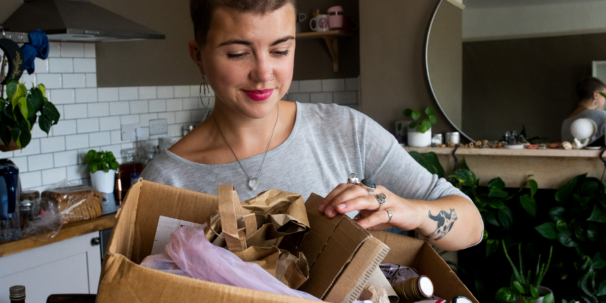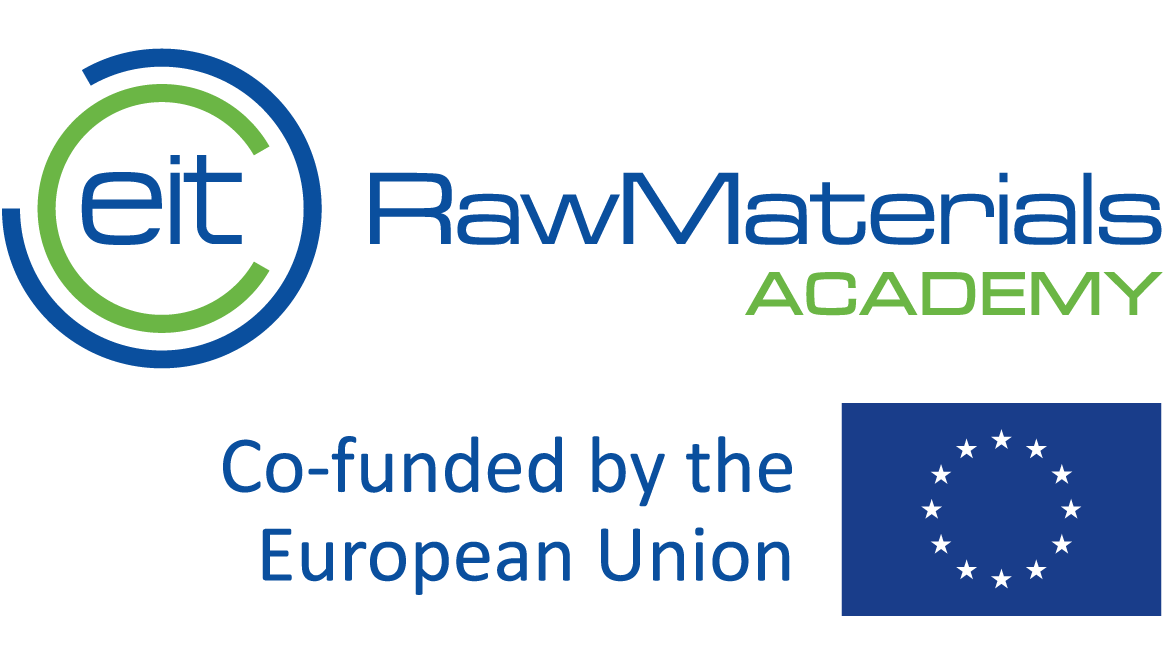The future of recycling
Recycling is booming and jobs in sustainability continue to grow. But the recycling industry faces challenges. Here are the issues to learn about if you want to build your career and be part of the solution.

According to the World Bank around 2.2 billion tonnes of waste are produced globally each year. Around 270 million tonnes of that waste gets recycled – which equates to the weight of 740 Empire State buildings.
These staggering numbers – a result of population growth and huge increases in manufacturing – have resulted in recycling becoming a major global industry. The steady growth in recycling has happened in tandem with increasing awareness of environmental threats and the emergence of careers in sustainable and ethical business practices.
As well as being an industry in its own right, recycling is also a staple of the corporate social responsibility models that most organisations have adopted.
At FutureLearn we have developed courses with prestigious universities and experts in the field of sustainability that will guide you towards a career path where you can help shape the future of our planet.
But what is the future of recycling? And what types of courses and job routes are there within the sector? Here is everything you need to know.
Why do we recycle?
Recycling has become an everyday activity in countries with the necessary infrastructure. It is one of the simplest ways that ordinary people can contribute towards helping the environment. With solid waste disposal contributing around 3% of global greenhouse gas emissions (and food waste another 6%) recycling what we use is hugely important.
Recycling reduces the amount of waste sent to landfill and the carbon footprint associated with manufacturing products made from plastics, metals, glass, paper, card, fabric and other materials, from scratch.
To quote Stanford University recycling is “an ethic of resource efficiency – of using products to their fullest potential.” Using recycled material to make new products, instead of raw materials, conserves energy and natural resources because the base processing is not repeated. For example, using a recycled aluminium can to produce a new aluminium can uses 95% less energy than creating that can from scratch using bauxite.
Now, and in the future, our consumption of digital technology means we need to develop greater capacity for recycling the electronic devices we use, such as mobile phones, laptops and the batteries that power our devices. If you are looking to further a career in the science and mechanics of recycling, then our E-waste course is the one for you. This open step taken from the course, shows the energy savings we make by recycling the aluminium used in the casing of our phones.


Will there be more recycling in the future?
The environmental policies laid out by governments in developed countries show us that recycling is set to continue increasing in volume and scale over the next quarter of a century. Beyond that, if targets are reached, recycling could become one of the most established industries around.
As an example of what could be achieved, the UK government has set a target of achieving zero avoidable waste by the year 2050. This means reusing or recycling all waste in the UK, and/or using only materials used from recycled/recyclable products, instead of single-use items.
The EU, meanwhile, has set a target that 50% of plastic packaging must be recyclable and recycled by 2025.
While these targets may be redrawn as new manufacturing technologies emerge – nevertheless, it means the industry looks likely to grow.
If you want to learn how governments decide on climate change policies we’ve got this great course for you, taught by the climate policy experts at the Adam Smith Centre and the Institute for Energy Research.




Climate change and the impact of recycling
As the threat of climate change increases, understanding the ‘reduce, re-use, recycle’ circular economy is a fundamental building block in moving economies towards sustainable futures.
Industries from fashion to fishing to food are re-evaluating their impact on the planet and on local and global communities.
As research from Stanford University shows, one tonne of recycled office paper saves a staggering 4,100 Kw/h of energy, nine barrels of oil, 54 million BTUs (British Thermal Units) of energy, 27 kg of air pollutants from being released, 7,000 gallons of water, and 3.3 cubic yards of landfill space.
The energy saving from recycling a tonne of plastic is even greater. And recycling plastics in a ‘closed loop’ system means we can recycle them many times without downgrading their quality (a more desirable outcome), while ‘open loop’ systems downgrades their quality.
Normalising the circular economy – the three R’s of Reducing our consumption of items, Reusing the items we consume and Recycling the raw materials in those items – will go a long way to reducing greenhouse gas emissions.
In front of the three R’s, the Royal Society of Chemistry has placed two more R’s – Rethink and Re-design – meaning the way that we conceptualise and make things requires increased ingenuity to tackle the mass waste issues that confront the future of recycling.
To learn more about uncovering solutions to the environmental challenges societies are facing today, join our Beginner’s Guide to Environmental Science course.
Whatever industry you work in, if you are in leadership and management our Microcredentials can help you get a handle on how to equip your business for a sustainable future and help your organisation reduce its impact on climate change.
Which industries have the biggest recycling challenges and opportunities?
Pretty much every industry around has a need for recycling and waste management. We’ve selected four that represent the biggest opportunities for learning and careers.
1. Food
Food production and food waste is both a huge challenge and opportunity. While decomposing food – and the carbon footprint from wastage (food that is produced and never gets eaten) contributes huge greenhouse gas emissions that need to be reduced, there are also energy potentials from all that rotting food. Food produces methane as it decomposes, which can be harnessed to create energy as an alternative to fossil fuels like oil and gas.
Learn how to tackle food waste with our expert-led course and drill down into futuristic recycling methods like upcycling foods including bread, grain and even chewing gum. Acquire expert knowledge on sustainable food production and deep-dive into managing the waste produced by the 2 billions cups of coffee the world drinks every day. And get certified in improving the sustainability of the fishing industry.
2. Manufacturing
Manufacturing has multiplied unimaginably from the days of the industrial revolution to now, and with it the invention of plastics has led to all kinds of pollution problems, including 12 million tonnes of plastics flowing into our oceans each year. Currently just 9% of plastic is recycled globally. But new innovations in recycling could change things. More on that below. Read up on reducing plastic waste and how ‘recommerce’ is changing our consumption habits in our useful FutureLearn blogs.
3. Fashion
In our fascinating new course Ghanian Creative Solutions to Textile Waste you will learn that a shocking three-quarters of all textile waste is incinerated or sent to landfill. In an open step from our Upcycling course you’ll discover that it takes 2,700 litres of water to produce one t-shirt. Imagine how wasteful it is to simply throw that t-shirt in the bin? Find out how you can innovate to transform this damaging situation, generate jobs and make fashion a more sustainable industry.
4. Technology
The International Labour Organization (ILO) tells us that “each year close to 50 million tonnes of electronic and electrical waste (e-waste) are discarded – the weight of more than all commercial airliners ever made.” They estimate that this material is worth around $62.5 billion dollars – “more than the GDP of most countries.” Only 20% of e-waste is recycled and “instead millions of women and men worldwide (over 600,000 in China alone) work to collect, repair, refurbish, dismantle, recycle and dispose of e-waste, much of it done in working conditions harmful to both health and the environment.”
Learn how to manage e-waste and how unsustainable practices impact the developing world with our expert-led courses.


Recycling mini-glossary
- Circular economy – how we reduce, reuse and recycle
- Downcycling – using waste material to create lower-quality new products
- Energy recycling – Re-utilising wasted energy at large buildings and facilities to convert it into electricity
- E-waste – Discarded electronic items that can be toxic and hazardous
- Food waste – The social and environmental impact of over-producing and wasting food
- Garden waste – also known as ‘green waste’ – basically plants and leaves that can be re-used as mulch or compost
- Upcycling – using waste material to create high-quality new products
The changing face of recycling and the north south divide
For two decades the global recycling industry centred around China and the West, with the vast majority of plastic and paper recycling exports generated by G7 nations and shipped to China where companies paid for the waste and then processed it in huge factories, generating huge profits for its manufacturing industries and for brokers from international waste disposal firms, and employing an army of Chinese workers. The United States remains one of the highest-producing exports of recycling and waste.
In 2018 however, China placed restrictions on the amount and type of recycling waste it would import – throwing the recycling industry into crisis and raising the question of what would now be done with all the trash, and whether this move signalled the end of recycling.
Following China’s clampdown there was a period of stagnation in the recycling industry and an increase in country’s having to incinerate more waste than had been the case. But quite quickly the exportation of recycling resumed and other, mostly Asian, countries replaced China as recipients of the West’s recycling – including Malaysia, Vietnam, Thailand, India and Taiwan.
By 2021, Bloomberg reported that, contrary to reports of the death of recycling, it was in fact booming. It’s not surprising, given that the world relies on recycled materials for production. Around 40% of raw materials used in manufacturing come from recycled materials, as a result of the circular economies that have emerged. Countries like the US are increasing their recycling capability. In Wisconsin last year, a factory opened that can produce 680,000 tonnes of paper made out of recycled waste paper each year. And in China moves are taking shape to massively increase the internal recycling infrastructure to combat plastic pollution.
But analysing the recycling divide between the West and the rest: China recycles just 30% of the plastic it produces as a nation, and in other parts of the world, recycling levels are even lower. Low-income countries typically dump and burn more than 90% of the waste they produce – causing pollution that damages people’s health, damages the environment locally, and adds to the growing climate change problem.
And by 2050, it is predicted that low-income countries will have tripled the amount of waste they produce. It is clear that recycling as a global effort is going to need new ideas, so that developing nations are not left behind.




Innovations and the future of recycling
While a lot of what you’ve read feels like a major challenge for the planet, the scientific community, with the cooperation of international humanitarian organisations and some big business, is working hard to find better solutions to the waste and recycling problems we face.
Carbios, a French company, is one among many start-ups developing alternatives to conventional recycling. They are challenging the idea that recycling plastics is an effective way to reduce environmental impact.
“At the end you have exactly the same quantity of plastic waste,” says their chief science officer Alain Marty. He means that as much as we reuse and recycle all the plastic we use, ultimately there will be an endpoint for its usability and it will be waste that has to ultimately be incinerated – whether that’s in a year, five years or a hundred years.
Instead, Carbios and other start-ups are developing a form of chemical recycling called de-polymerisation. Essentially they are using enzymes to break down the polymers in plastics into monomers, creating brand new material at a molecular level. The theory being that plastic bottles, cups, packaging – you name it – could be re-used over and over again forever, with no compromise to its quality or reusability.
Meanwhile, the ILO, World Economic Forum and other partners are pushing for a “global reboot” on e-waste that could transform a monumental problem into a circular, safe and healthy recycling industry for millions of employees in the developing world.
Final thoughts
What is clear is that recycling is booming and is here to stay. With new innovations, investments and approaches, there is a world of opportunity to learn, progress your career in sustainability, and help tackle climate change. The kind of career that rewards both intellectual curiosity and benefits every living thing on the planet.






